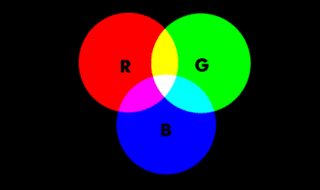
Google is a constantly changing platform. Their algorithms are always changing, leaving us all confused. Many people try to decipher how to create and design their websites so that it is according to Google’s standard.
Search quality evaluator guidelines were released by Google in 2015 that contain key rules on understanding how web pages are evaluated by human evaluators. With YMYL and EAT, the content quality is determined. They provide an insight into what high-quality web pages should look like. Read on to learn more about YMYL and EAT.
Why are YMLY and EAT Guidelines needed?
Your customers find your business through search engines. So it is important to apply Google’s guidelines if you want to remain at the top of marketing and rankings. So what is YMLY and EAT?
What is YMYL?

YMYL is short for Your Money or Your Life. This includes content that directly affects the reader’s health, mood, financial stability, and safety. Google takes YMYL sites very seriously, and they determine whether your site is YMYL or not.
To make YMYL content, you need to provide information on sites that is not inaccurate, false, misleading, or deceiving. Because it can negatively affect the reader’s life, only experts should create the content. YMYL topics could be;
· Government agencies and voting
· Financial advice regarding loans, insurance, taxes, investments, exchange of money online, among others
· News and current events about science, technology, politics, and business
· Legal advice and issues
· Medical problems and advice, information about hospitals, medicine.
· Shopping, where to buy items and services, online order and transactions
· Pages that measure up to YMYL content need to also have a high level of EAT.
What Is EAT?

EAT is short for Expertise, Authoritativeness, and Trustworthiness. EAT indicates the quality of the page. So the evaluators use EAT guidelines to evaluate the efficacy of your web pages and why users would read, share and recommend your website.
Google will assess how the online experience is, do your content meet the improving standards, and is the purpose of your site beneficial? If the answer is good, you will get a high score for EAT. The three main components of EAT are:
Expertise
The creator of the content should be an expert in the field that the website is about. Your experience and knowledge in your field should show through the content of your site, especially if your site is regarding finance, law, or medicine. It should be accurate and beneficial. If your content is non-YMYL, then topics related to everyday experiences do not require the creator to have any training, credentials. So basically, the expertise of the creator depends upon the topic of the site.
Authoritativeness
It means that you are an acknowledged authority. People accept that information that comes from you is good and correct. Reviews, credentials, and other sources should be on your website, and they will help in proving your authority.
Trustworthiness

You, your website, and your content needs to be trustworthy so that people can be honest and provide accurate information easily. This is especially true for an e-commerce site where if users feel unsafe, they will not enter the correct information. So you need to implement an SSL certificate to gain trust.
Conclusion
SEO is complicated and overwhelming but essential for the marketing of your business. So if you need help, you can get help from the experts who can assess your site and help you make it better.




